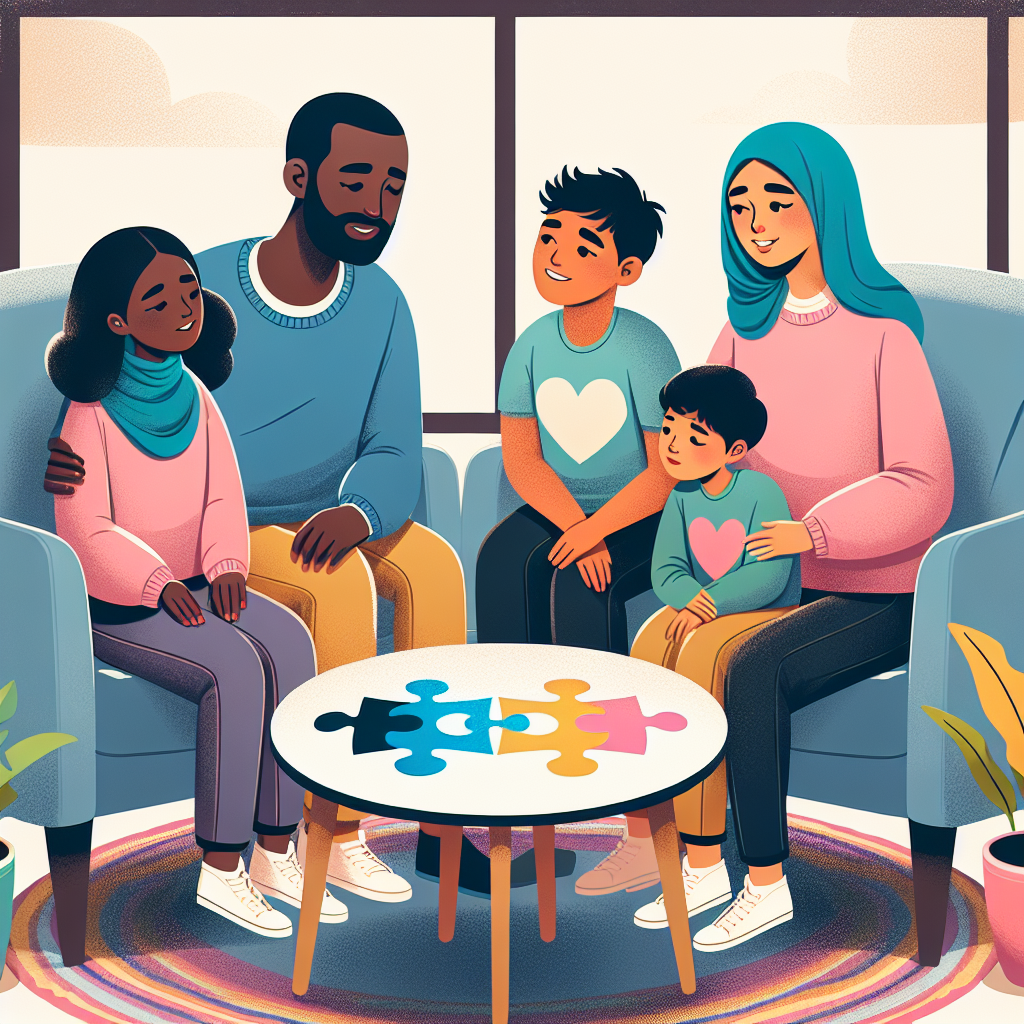Healing Broken Bonds: The Power of Family Therapy in Rebuilding Relationships
Family is one of the most important aspects of our lives. It provides us with love, support, and a sense of belonging. However, when relationships within the family become strained or broken, it can have a profound impact on our well-being and overall happiness.
Thankfully, family therapy is a powerful tool that can help to mend broken bonds and rebuild relationships within the family unit. In this article, we will explore the benefits of family therapy and how it can help families navigate through challenging times.
What is Family Therapy?
Family therapy, also known as family counseling, is a type of psychological counseling that helps family members improve communication, resolve conflicts, and strengthen relationships. It is typically conducted by a trained therapist who works with the entire family or specific members to address issues that are causing tension and distress.
Family therapy is based on the belief that families are interconnected systems, and that individual behavior and emotions are influenced by the dynamics of the family unit. By addressing these dynamics and helping family members understand each other’s perspectives, family therapy can help to improve relationships and promote healing.
Common reasons for seeking family therapy include:
– Communication breakdown
– Conflict resolution
– Divorce or separation
– Substance abuse
– Mental health issues
– Grief and loss
– Parenting challenges
How Does Family Therapy Work?
Family therapy typically begins with an initial assessment to identify the issues that need to be addressed and the goals that the family wants to achieve. The therapist will then work with the family to develop a treatment plan that is tailored to their specific needs.
During sessions, the therapist will help family members explore their thoughts and feelings, identify patterns of behavior, and improve communication skills. The therapist may also use various techniques and interventions to help the family work through conflicts and develop healthier ways of relating to one another.
Family therapy can be conducted in different formats, including individual sessions, group sessions, or a combination of both. The frequency and duration of therapy will vary depending on the nature of the issues and the goals of the family.
Benefits of Family Therapy
Family therapy offers numerous benefits for families who are struggling with relationship issues. Some of the key benefits include:
– Improved communication: Family therapy helps family members learn how to communicate effectively, express their needs and feelings, and listen to each other with empathy and understanding.
– Conflict resolution: By addressing conflicts and underlying issues, family therapy can help families resolve disagreements and find constructive ways to work through challenges.
– Strengthened relationships: Family therapy can help to rebuild trust, strengthen bonds, and create a more cohesive and supportive family unit.
– Increased self-awareness: Family therapy provides opportunities for family members to gain insight into their own behavior and emotions, as well as the impact they have on others.
– Coping skills: Through therapy, families can learn healthy coping skills and strategies for managing stress, addressing problems, and navigating difficult situations.
– Improved mental health: Family therapy can help to alleviate symptoms of depression, anxiety, and other mental health issues by providing a safe space for processing emotions and seeking support.
Overall, family therapy has the potential to create lasting positive changes and foster healing within the family system.
FAQs about Family Therapy
Q: How do I know if my family needs therapy?
A: If you are experiencing frequent conflicts, communication breakdown, or other significant challenges within your family, it may be beneficial to consider family therapy. Seeking therapy can help you address these issues and work towards building healthier relationships.
Q: Do all family members need to participate in therapy?
A: Ideally, all family members should participate in therapy to achieve the best outcomes. However, if some family members are unwilling or unable to participate, therapy can still be beneficial for those who are willing to engage.
Q: How long does family therapy last?
A: The duration of family therapy varies depending on the nature of the issues and the goals of the family. Some families may only need a few sessions to address specific issues, while others may benefit from longer-term therapy to achieve lasting changes.
Q: Will family therapy be covered by insurance?
A: Many insurance plans cover family therapy, but coverage may vary depending on the provider and the type of therapy. It is recommended to check with your insurance provider to determine coverage and any out-of-pocket costs.
Q: What if my family member refuses to participate in therapy?
A: It is not uncommon for some family members to be resistant to therapy. In such cases, it may be helpful to speak with the therapist to discuss alternative approaches or strategies for engaging reluctant family members.
In conclusion, family therapy is a valuable tool for healing broken bonds and rebuilding relationships within the family. By addressing underlying issues, improving communication, and fostering understanding, families can work towards creating a more harmonious and supportive environment. If your family is struggling, consider seeking the support of a qualified family therapist to help you navigate through challenging times and strengthen your relationships.




Leave A Comment